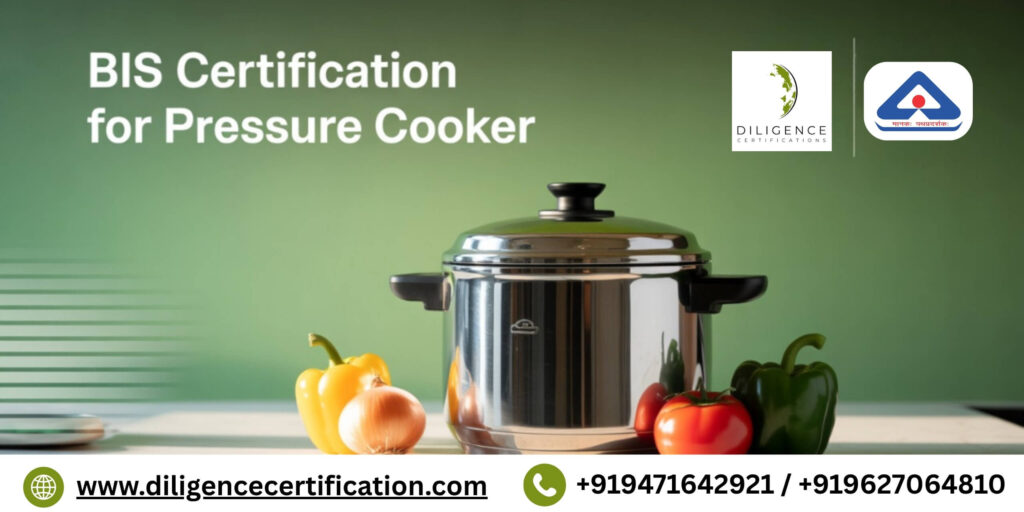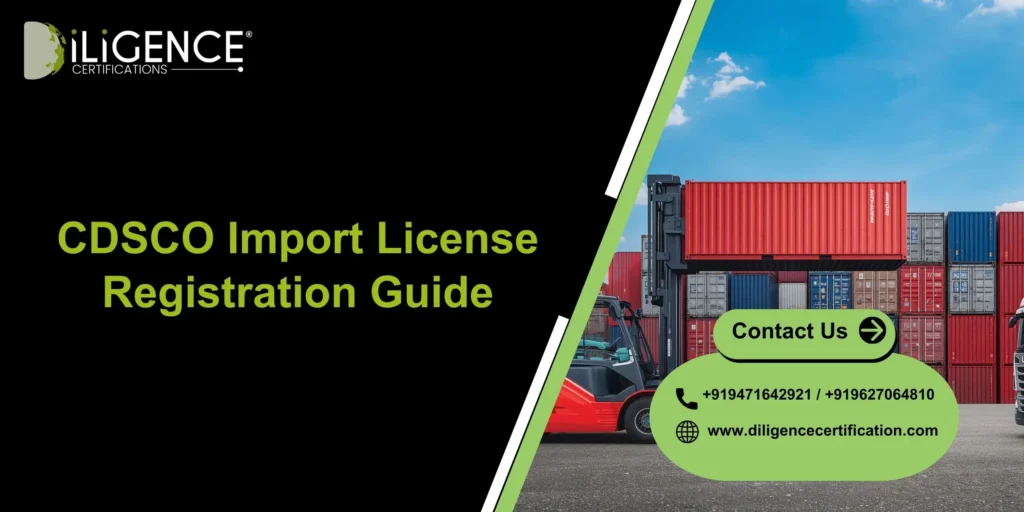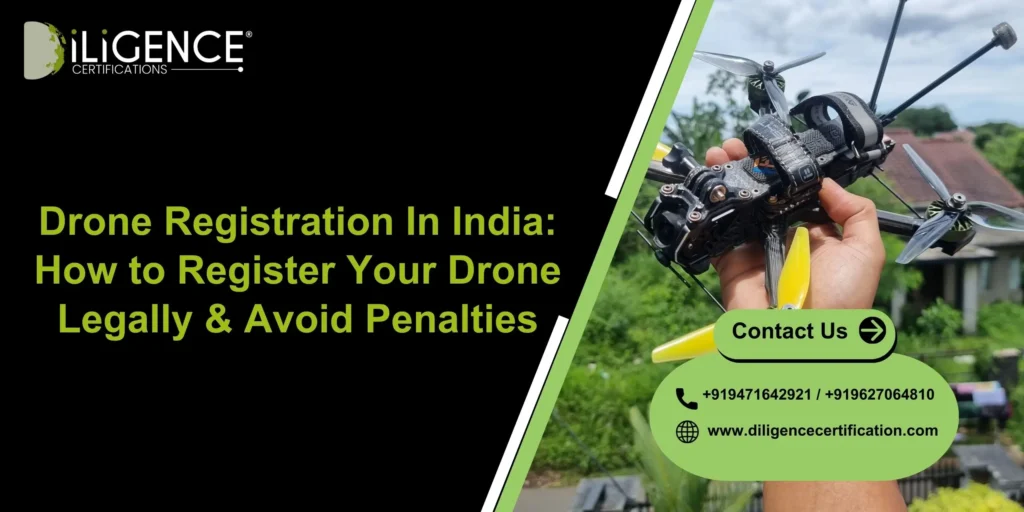- BIS standards for pressure cookers ensure safety, performance, and legal compliance under IS 2347:2017.
- BIS ISI Mark for pressure cookers is mandatory in India under Quality Control Order (QCO) regulations.
- Brands like Prestige, Hawkins, and Pigeon depend on BIS certification for pressure cookers to ensure market access and customer trust.
- Bureau of Indian Standards for pressure cookers Under IS 2347.
Introduction:
In early 2024, a cookware manufacturer based in Gujarat approached us after their consignment of pressure cookers was held at Mumbai Port. The reason? They were missing BIS ISI mark certification under IS 2347:2017. Despite producing high-quality products, the lack of official certification blocked their entry into the India e-commerce market.
The financial loss was secondary. The real setback was their lost credibility. As we guided them through the certification for pressure cookers, they learned something vital: BIS for pressure cooker are not just formalities—they’re legal and safety essentials.
Many cookware companies everywhere in India face challenges. A BigBasket listing, onboarding with Flipkart or struggling to navigate basic customs clearance, every roadblock begins mostly with BIS compliance. In an industry with product safety at its center, where the negative impact of failure can affect health and wellbeing, there’s more than just business at stake—there’s a greater responsibility!
What Are BIS Standards Pressure Cookers?

IS 2347:2017
The BIS standard applicable to domestic pressure cookers is IS 2347:2017. It lays down essential quality and safety protocols:
- Material grades (Aluminium or Stainless Steel)
- Structural requirements
- Pressure and durability tests
- Labelling norms and packaging requirements
IS 2347:2017 ensures that every pressure cooker sold in India complies with stringent parameters of durability, thermal efficiency, leak protection, and food-grade material use. These aren’t just suggestions—they are legal obligations.
Legal Backing Under Quality Control Order (QCO)
According to a Gazette Notification by the Department for Promotion of Industry and Internal Trade (DPIIT), pressure cookers are covered by QCO. Therefore, every pressure cooker—either domestically manufactured or imported from other countries—must have BIS certification for pressure cooker.
Without BIS certification, there are legal restrictions against selling these products throughout the country. E-commerce platforms, modern trade outlets, and even shipments for export are increasingly declining to accepting illegal products.
Why BIS ISI Mark for Pressure Cookers is Mandatory
Avoid Fines, Delays, and Bans
Selling uncertified products is a punishable offence under the BIS Act, 2016. Violations may lead to:
- Stock seizures
- Criminal complaints
- Legal bans from platforms like Amazon
- Financial penalties up to ₹2 lakh and imprisonment for repeat offences
The QCO makes BIS mark for pressure cookers a statutory requirement. Regulatory raids or consumer complaints can trigger sudden crackdowns, leading to operational disruption and reputational loss.
Platform Mandates
Almost every major Indian marketplace demands BIS registration before approving listings for pressure cookers. Even logistics companies now ask for compliance before shipping large volumes.
With algorithm-based compliance checks on e-marketplaces, listings without valid certification are now automatically delisted. Amazon, Snapdeal, and Flipkart often require the ISI license number during product onboarding.
Build Consumer Confidence
Would you buy a gas stove or pressure cooker without a safety symbol? Neither would your customers. A BIS ISI mark on pressure cookers speaks volumes about safety.
Consumers today are more informed than ever. They associate the ISI symbol with durability, safety, and quality assurance. Brands like Butterfly, Vinod, and Wonderchef use this to their advantage in retail marketing and digital campaigns.
What IS 2347:2017 Covers in Detail
1. Material Specification
- Aluminium: As per IS 21, chemically inert, food-safe.
- Stainless Steel: minimum grade AISI 304, resistant to corrosion.
- Gasket: non-toxic, food-safe material.
Material integrity is the first measure of product safety. Pressure cookers experience high heat and pressure internally, so bring exposed to high heat or stress does not degrade for safety. IS 2347:2017 clearly documents processes for raw material assessment to deliver long life and no contamination risks.
2. Safety Components
- Primary Pressure Regulator
- Lid Locking Mechanism
- Safety Plug (Overpressure release system)
Each safety element must be engineered to handle extreme pressure scenarios. Fail-safe mechanisms are evaluated under lab-controlled simulated hazards. Missing even one of these can disqualify the product from BIS certification.
3. Performance Testing
- Leakage resistance test
- Hydrostatic pressure test
- Endurance test for repeated use
Every pressure cooker undergoes simulated cooking cycles—often thousands—before being approved. These checks replicate real-life conditions to ensure that the product performs reliably over years of use.
4. Labelling & Packaging
Each BIS-compliant unit must display:
- The ISI mark with license number
- Manufacturer details, batch number
- Warning & instruction manual
Packaging must educate the user. Poor or missing labels can mislead consumers and trigger safety incidents. IS 2347:2017 mandates transparency, and violators are immediately flagged by compliance authorities.
Step-by-Step Guide to BIS Certification for Pressure Cookers

Step 1: Identify Applicable Standard
For pressure cookers: IS 2347:2017. This is your blueprint for technical, performance, and labeling compliance.
Step 2: Submit Application on BIS Manak Online Portal
Visit bis.gov.in. Register your factory or import company, upload your production documents, quality control protocols, and appoint an Authorized Indian Representative (AIR) if importing.
The application requires complete clarity—any inconsistency in the paperwork can cause delays.
Step 3: Product Testing at BIS Recognised Labs
Submit samples to BIS-authorised labs. They conduct:
- Pressure tests
- Strength verification
- Safety plug functionality
- Material composition check
Results from these tests form the basis for your certification decision. Lab reports are strictly evaluated—BIS doesn’t compromise on safety.
Step 4: Factory Audit
A BIS team visits your production unit to:
- Verify safety compliance
- Check machinery
- Review raw material sourcing and SOPs
- Interview plant managers
Auditors focus on preventive maintenance logs, calibration records, and even warehouse hygiene. BIS wants to ensure your system consistently produces compliant cookers.
Step 5: Certification Grant
If your factory and product pass, BIS issues the license along with a unique number. The certification is usually valid for 1–2 years with annual renewals.
You can now legally use the BIS ISI mark for pressure cooker and enter the Indian market across platforms and retail touchpoints.
Learning from the Market
Hawkins – Ahead of Compliance
Hawkins pressure cookers are often used by BIS labs as standard reference models. Their compliance journey is a case study in proactivity. The brand adopted BIS protocols before QCO mandates, setting the gold standard.
They’ve also digitized their compliance documentation, allowing real-time tracking and batch-level traceability—something every new manufacturer can learn from.
Prestige – Educating Users
Prestige’s packaging includes a full-page explainer about their BIS ISI mark for pressure cookers, turning compliance into a marketing USP. Their “Safer Cooking, Certified Cooking” campaign led to a 12% sales boost post-QCO rollout.
Prestige has also collaborated with BIS in workshops to educate dealers and franchisees—proving that awareness drives credibility.
Startup Revival
A Pune-based cookware startup contacted QuickRanks after being blocked from BigBasket due to non-compliance. Post-certification, they not only got access to e-commerce platforms but also partnered with D-Mart.
Their revenue grew 3x in six months—simply by adhering to BIS certification for pressure cookers and showcasing it across social media, catalogs, and influencer campaigns.
“Certification isn’t an expense. It’s your entry ticket to every Indian kitchen.”
Conclusion
Awareness and adoption of BIS standards for pressure cooker really matters for safety, credibility, and legality. Whether you are starting a new brand or scaling an existing one, the BIS ISI mark for pressure cookers is important because it ensures a place for your product in every Indian kitchen.
But beyond the regulatory path, it provides peace of mind to the end-user, Indian families who depend on pressure cookers every day for cooking quickly and healthily. The credibility of the BIS certification for pressure cookers is vast, securing the end-user premium trust, and often the key element for securing a shelf-space in retail and online listing approvals.
Following the IS 2347:2017 for pressure cookers, initially appears labour-intense – from performance testing to factory audits – but you’ll now clearly see how you’ve aligned with globally benchmarked safety standards, and you’ll also lift the perceived value of your brand. Add value to your Bombay or Mumbai-based pressure cooking brand, and the best thing about this journey will be brand credibility for ongoing, and also uninterrupted access to India’s vibrant retail ecosystem.
If you don’t know where to start and are thinking about connecting with certification professionals such as Diligence Certification. They can provide end-to-end service including documentation, liaison with lab, audit readiness, and more so they essentially do not miss a step for you in the BIS certification for pressure cookers process.
So don’t wait for a compliance notice or platform denial to comply with the BIS standard. Regardless if you are manufacturing locally or importing under the AIR scheme, the first thing to do is simple: start the BIS certification process for pressure cookers now.
Skip the risk. Work with experts like Diligence Certification and ensure you meet every clause of IS 2347:2017. Get certified, get listed, and grow with confidence.
Frequently Asked Questions
What are BIS standards for pressure cooker?
BIS standards for pressure cooker, described under IS 2347:2017, defines safety, reliability, legislation, etc. The BIS standards for pressure cooker, define everything from the quality of material to break-out mechanism.
Why is BIS certification for pressure cookers a necessity?
The BIS certification for pressure cookers is mandatory as per the law under QCO. One shouldn’t sell anything that isn’t certified in India, as you will face jail time, hefty fines, or have to take back your product.
What is IS 2347:2017 in BIS certification?
The IS 2347:2017 is specification for the manufacture of pressure cookers that contains performance, material, and safety requirements for complying with the BIS ISI mark.
What are the steps to apply for BIS ISI mark for pressure cookers?
Manufacturers of pressure cookers must apply in bis.gov.in, provide suitable documents, pass examinations of it’s products by laboratories and a BIS factory audit, to obtain the BIS ISI mark for pressure cookers.
How long does BIS certification for pressure cookers take?
The process from the proper documentation, to lab testing, to the passing of the regular factory audit and finally getting your products through BIS will takes about 30-45 working days for the BIS for pressure cookers.
Is it necessary to have BIS certification for cookers made of stainless steel and aluminium?
Yes, BIS certification pressure cookers covers both aluminium or stainless-steel made cookers and is under IS 2347:2017.
Do pressure cookers imported from abroad require BIS certification?
Yes, the BIS certification also applies to imported units. An Authorized Indian Representative (AIR) must be authorized to obtain BIS certification.
What happens if my product fails BIS testing?
If your pressure cooker fails the BIS lab testing, you will be required to resolve the issues and then reapply. There are no sales allowed without a valid certification.
Can online sales platforms sell non BIS certified cookers?
No. Online sales platforms must have the BIS mark for pressure cookers. They will reject any listings without a valid certification.
What documents need to be submitted to begin the certification for pressure cookers?
You will need factory information, quality control procedures, product samples, and laboratory testing to apply for BIS certification for pressure cookers.








 BIS Certification
BIS Certification
 CDSCO
CDSCO
 CPCB
CPCB
 LMPC
LMPC
 WPC Approval
WPC Approval
 Global Approvals
Global Approvals
 TEC
TEC
 ARAI
ARAI
 BEE
BEE
 ISO Certification
ISO Certification
 DGCA Certification
DGCA Certification
 NOC For Steel
NOC For Steel



















 Business Registration
Business Registration















 Legal Services
Legal Services
 Trademark Registration
Trademark Registration
 Copyright Registration
Copyright Registration
 Patent Registration
Patent Registration

















































